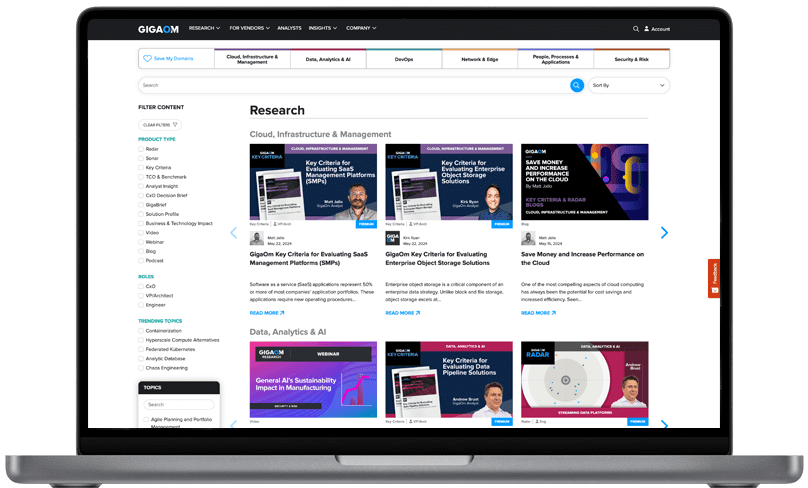Table of Contents
- Summary
- IDP Solutions Primer
- Report Methodology
- Decision Criteria Analysis
- Evaluation Metrics
- Key Criteria: Impact Analysis
- Analyst’s Take
- Methodology
- About GigaOm
- Copyright
1. Summary
Intelligent document processing (IDP) solutions enable the digitization of paper-based information assets and documents (PDFs, emails, invoices, and so on) containing semi-structured and structured data. IDP solutions offer artificial intelligence (AI), machine learning (ML), natural language processing (NLP), and deep learning capabilities to improve data extraction accuracy and the degree of straight-through processing (STP).
The emergence of IDP solutions beyond intelligent optical character recognition (OCR) tools resulted from significant investments in AI, ML, NLP, and deep learning capabilities meant to overcome the limitations of legacy OCR tools. Even with relatively bad quality documents and scanners, IDP solutions can deliver greater accuracy in data extraction, something legacy OCR tools frequently struggle to supply.
Decision makers will want to determine whether an IDP solution is a refurbished intelligent OCR tool or a dedicated product built from the ground up to meet the requirements of complex use cases. IDP solutions offering a template-free approach can be trained on new document types and layouts by using a relatively limited number of sample documents, and such solutions will usually deliver a greater value at a lower cost of ownership. IDP solutions should be adopted as part of a broader enterprise automation strategy that uses suitable software products to meet various task, process, and document automation requirements.
This GigaOm Key Criteria report details the criteria and evaluation metrics for selecting an effective IDP solution. The companion GigaOm Radar report identifies vendors and products that excel in those criteria and metrics. Together, these reports provide an overview of the category and its underlying technology, identify leading IDP offerings, and help decision-makers evaluate these solutions so they can make a more informed investment decision.
How to Read this Report
This GigaOm report is one of a series of documents that helps IT organizations assess competing solutions in the context of well-defined features and criteria. For a fuller understanding, consider reviewing the following reports:
Key Criteria report: A detailed market sector analysis that assesses the impact that key product features and criteria have on top-line solution characteristics—such as scalability, performance, and TCO—that drive purchase decisions.
GigaOm Radar report: A forward-looking analysis that plots the relative value and progression of vendor solutions along multiple axes based on strategy and execution. The Radar report includes a breakdown of each vendor’s offering in the sector.
Solution Profile: An in-depth vendor analysis that builds on the framework developed in the Key Criteria and Radar reports to assess a company’s engagement within a technology sector. This analysis includes forward-looking guidance around both strategy and product.
